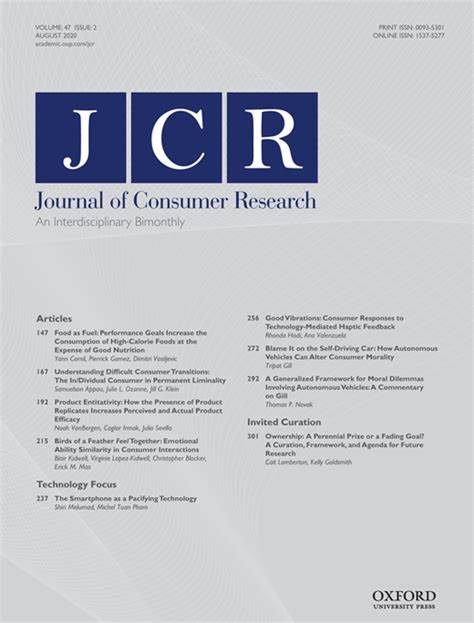社会道德附加费的价格划分
IF 6.4
1区 管理学
Q1 BUSINESS
引用次数: 0
摘要
许多公司在产品上强制征收附加费,为社会道德事业筹集资金(如碳补偿、生活工资、公平贸易和可持续发展附加费)。这些附加费应该与产品价格分开(即分区定价),还是与产品价格结合(即全包定价)?本研究认为,社会道德附加费的分区定价可能会适得其反。当社会道德附加费被分割时,消费者会觉得公司在逃避自己的责任,从而降低企业社会责任(CSR)的内在属性,进而导致消费者的不良反应。这一理论针对的是社会道德附加费,而对非社会道德附加费的影响则相反。此外,我们还记录了企业改变消费者信念和减轻负面反应的三种方法。这些方法包括发出信号,表明企业并不寻求声誉上的利益,企业并不逃避责任,以及将消费者的关注点从他们必须承担的成本转移到他们获得的利益上。因此,本研究为管理者和政策制定者提供了将社会道德附加费纳入产品价格同时减轻消费者反弹的启示。本文章由计算机程序翻译,如有差异,请以英文原文为准。
Price Partitioning of Socio-Moral Surcharges
Many companies are levying mandatory surcharges on products to raise funds for socio-moral causes (e.g., carbon-offset, living-wage, fair-trade, and sustainability surcharges). Should these surcharges be presented separately from the product price (ie, partitioned pricing) or combined with the product price (ie, all-inclusive pricing)? This research argues that partitioned pricing for socio-moral surcharges can backfire. When socio-moral surcharges are partitioned, consumers feel that the company is avoiding its own responsibility towards the cause, reducing intrinsic corporate social responsibility (CSR) attributions and consequently leading to adverse consumer reactions. This theorization is specific to surcharges attached to socio-moral causes; the effects reverse for non-socio-moral surcharges. Further, we document three ways via which firms can alter consumer beliefs and attenuate negative reactions. These include approaches that signal that the firm is not seeking reputational benefits, that the firm is not avoiding responsibility, and by shifting consumers’ focus from the costs they have to bear to the benefits they accrue. Hence, this research presents implications for managers and policymakers seeking to incorporate socio-moral surcharges into product prices while mitigating consumer backlash.
求助全文
通过发布文献求助,成功后即可免费获取论文全文。
去求助
来源期刊

Journal of Consumer Research
BUSINESS-
CiteScore
12.00
自引率
9.70%
发文量
53
期刊介绍:
Journal of Consumer Research, established in 1974, is a reputable journal that publishes high-quality empirical, theoretical, and methodological papers on a wide range of consumer research topics. The primary objective of JCR is to contribute to the advancement of understanding consumer behavior and the practice of consumer research.
To be considered for publication in JCR, a paper must make a significant contribution to the existing body of knowledge in consumer research. It should aim to build upon, deepen, or challenge previous studies in the field of consumption, while providing both conceptual and empirical evidence to support its findings.
JCR prioritizes multidisciplinary perspectives, encouraging contributions from various disciplines, methodological approaches, theoretical frameworks, and substantive problem areas. The journal aims to cater to a diverse readership base by welcoming articles derived from different orientations and paradigms.
Overall, JCR is a valuable platform for scholars and researchers to share their work and contribute to the advancement of consumer research.
 求助内容:
求助内容: 应助结果提醒方式:
应助结果提醒方式:


